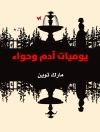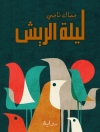In ‚Lulu’s Library – Complete Collection: 30+ Stories for Children (Illustrated), ‚ Louisa May Alcott presents a captivating tapestry of enchanting tales that showcase her remarkable ability to blend whimsy and morality. The book features over thirty stories, accompanied by delightful illustrations that breathe life into characters and settings. Alcott’s literary style is imbued with a sense of warmth and encouragement, reflecting the values of her time while still maintaining an accessible charm. Rooted in the broader context of 19th-century American children’s literature, this collection invites young readers into a world where imagination reigns and valuable life lessons are artfully woven through narratives enriched by fantasy and realism alike. Louisa May Alcott, renowned for her classic novel ‚Little Women, ‚ possessed both the creativity and the understanding of childhood’s complexities, shaping her approach to storytelling for children. Raised in a progressive household that valued education and the arts, Alcott often drew from her own experiences and observations of the world around her. Her dedication to developing the moral fabric of youth shines through in her writing, making this collection not only entertaining but also profoundly impactful. For educators, parents, and young readers alike, ‚Lulu’s Library‘ is an invaluable addition to any literary collection. Alcott’s timeless narratives encourage imagination, foster empathy, and illuminate the joys and trials of childhood. This illustrated anthology is sure to delight and inspire, offering readers a treasure trove of stories that resonate across generations.
Über den Autor
Louisa May Alcott (1832-1888), a revered figure of American literature, carved her place in literary history primarily through her classic novel ‚Little Women‘, but her oeuvre extends to a rich array of works, including the cherished collection ‚Lulu’s Library – Complete Collection: 30+ Stories for Children (Illustrated)‘. Gifted in capturing the intricacies of family life and the struggles of womanhood, Alcott’s writing is characterized by its blend of morality, realism, and vibrant characterization. Born in Germantown, Pennsylvania, Alcott was raised by transcendentalist parents who encouraged her writing aspirations. Her family’s financial instability led her to publish works under pseudonyms initially, but it was the success of ‚Little Women‘ that cemented her public persona. Alcott’s dedication to issues such as women’s suffrage and abolitionism often seeped into her prose, reflecting her advocacy for progressive social reforms. Her children’s literature, including ‚Lulu’s Library‘, showcases her skill in crafting didactic yet endearing narratives that have delighted and inspired generations. Bursting with imagination and moral lessons, these stories blend fantasy and reality, offering young readers a window into virtuous living. In scholarly circles, Alcott is celebrated not only for her literary contributions but also for her embodiment of the transcendentalist ethos and her unwavering commitment to social equality.












